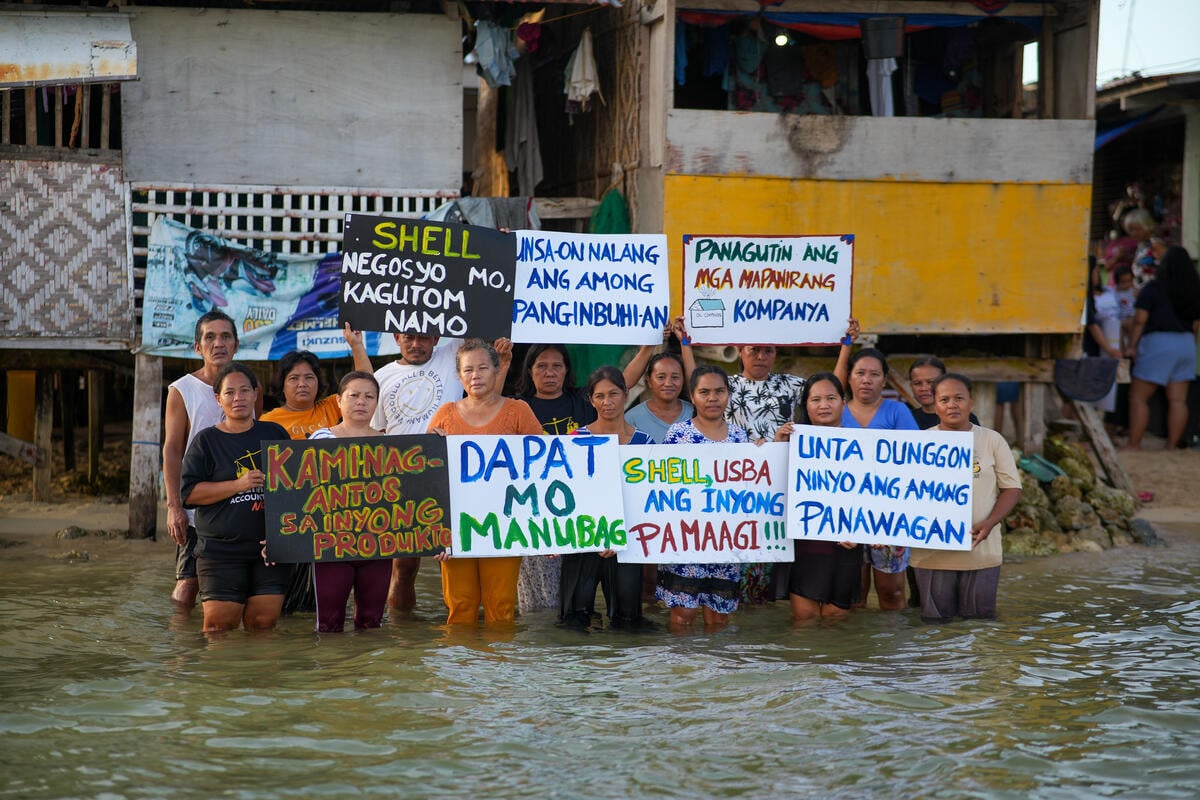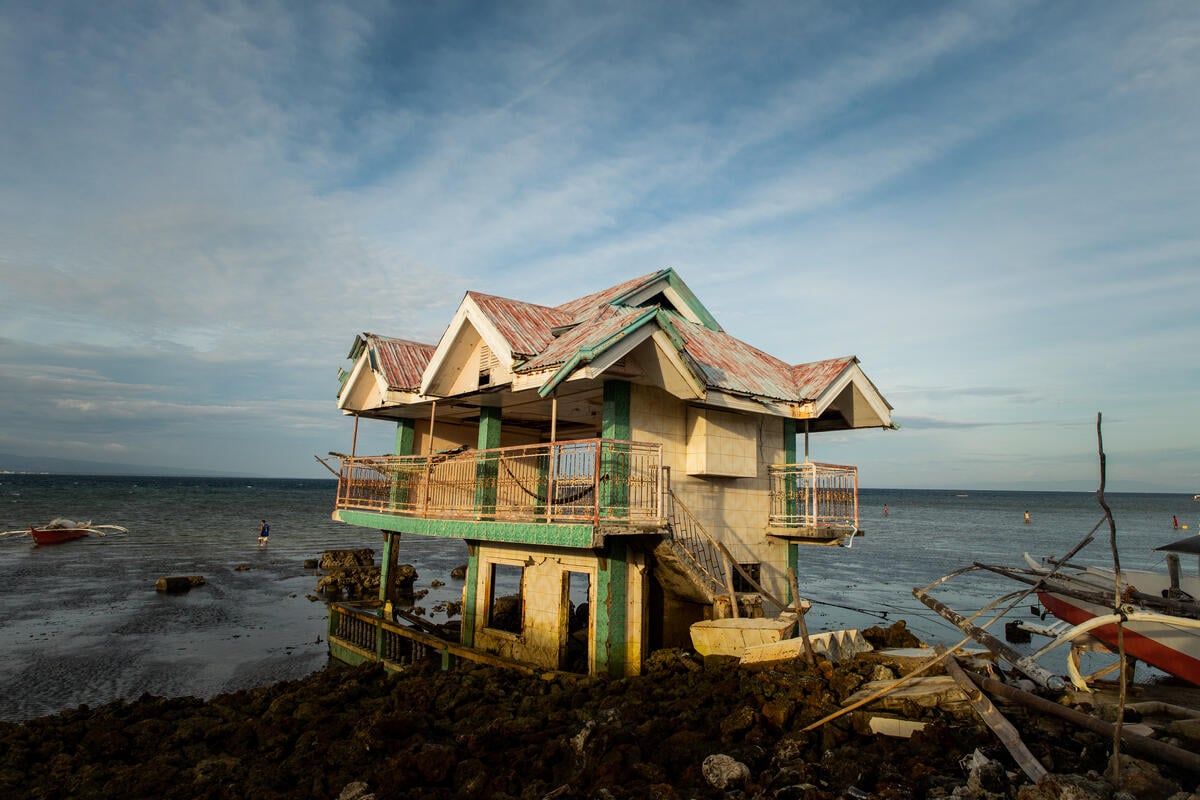Super Typhoon Odette (Super Typhoon Rai) swept through the Philippines in December 2021, wreaking havoc on multiple islands with its powerful winds and torrential rains that caused landslides and storm surges. Over 10 million people were affected - some lost their homes and livelihoods, while others lost their lives. Four years later, the survivors are suing British oil giant Shell.
As one of the most vulnerable countries to climate change, the Philippines experiences the worst typhoons every year. Stories of loved ones lost to floods, hard-earned family homes getting destroyed, or late night emergency evacuations are not isolated, but rather a typical experience for most Filipinos. And as the fossil fuel-induced climate crisis worsens and extreme weather events like super typhoons become more frequent, living in the Philippines has become an even greater struggle for survival. In 2022, the Philippines Human Rights Commission released a report detailing the civil liability against carbon majors, such as Shell, in relation to climate harms suffered in the Philippines.
"Suing a big corporation like Shell for their role in worsening Typhoon Rai might be a tall task, but I have to think about my children's future," said Trixy Elle, one of the claimants in the case, speaking in Filipino.
Trixie, along with 66 other claimants will be filing a case in the United Kingdom against Shell for its role in driving the climate crisis. The claimants, residents from the Visayas region of the Philippines, are holding the company accountable for its historic carbon emissions which have worsened extreme weather events like Odette and deepened the suffering of Filipino communities. They are seeking financial compensation for damages suffered, as well as injunctive relief that constrains Shell's future actions. This is the first civil claim to directly link the acts of oil and gas companies to death and personal injury from climate impacts that have occurred in the Global South.

The case draws on new climate attribution research which found that human-caused climate change more than doubled the likelihood of an extreme weather event. Super Typhoon Odette killed 405 people across Southeast Asia, injured over 1,400, and cost the Philippines US$800 million in damage.
Shell, which is responsible for 41 billion tons of CO2e since 1892 or more than 2% of global fossil fuel emissions, knew for decades that its operations would fuel extreme weather, yet chose its profit over people. Shell raked in record profits of US$40 billion the year after Odette, and the company's latest full-year profit was recorded at US$16.5 billion.
"It's so unfair that we have to suffer the effects of climate change even if our contribution to global pollution is so miniscule compared to Shell. Why is it that we have to shoulder the burden?" Trixie continues.

This community-led legal action comes on the heels of the International Court of Justice on climate change's advisory opinion on climate change (ICJAO), confirming that states must regulate businesses for climate harms caused by their emissions, regardless of where the harm occurs.
The Odette survivors' case is both a call for climate justice and systemic accountability: to make polluters pay, end corruption that leaves communities defenseless, and reclaim the Filipino people's right to a safe and livable future.






